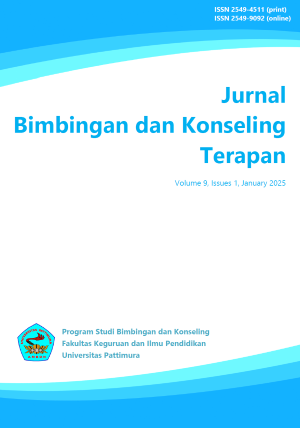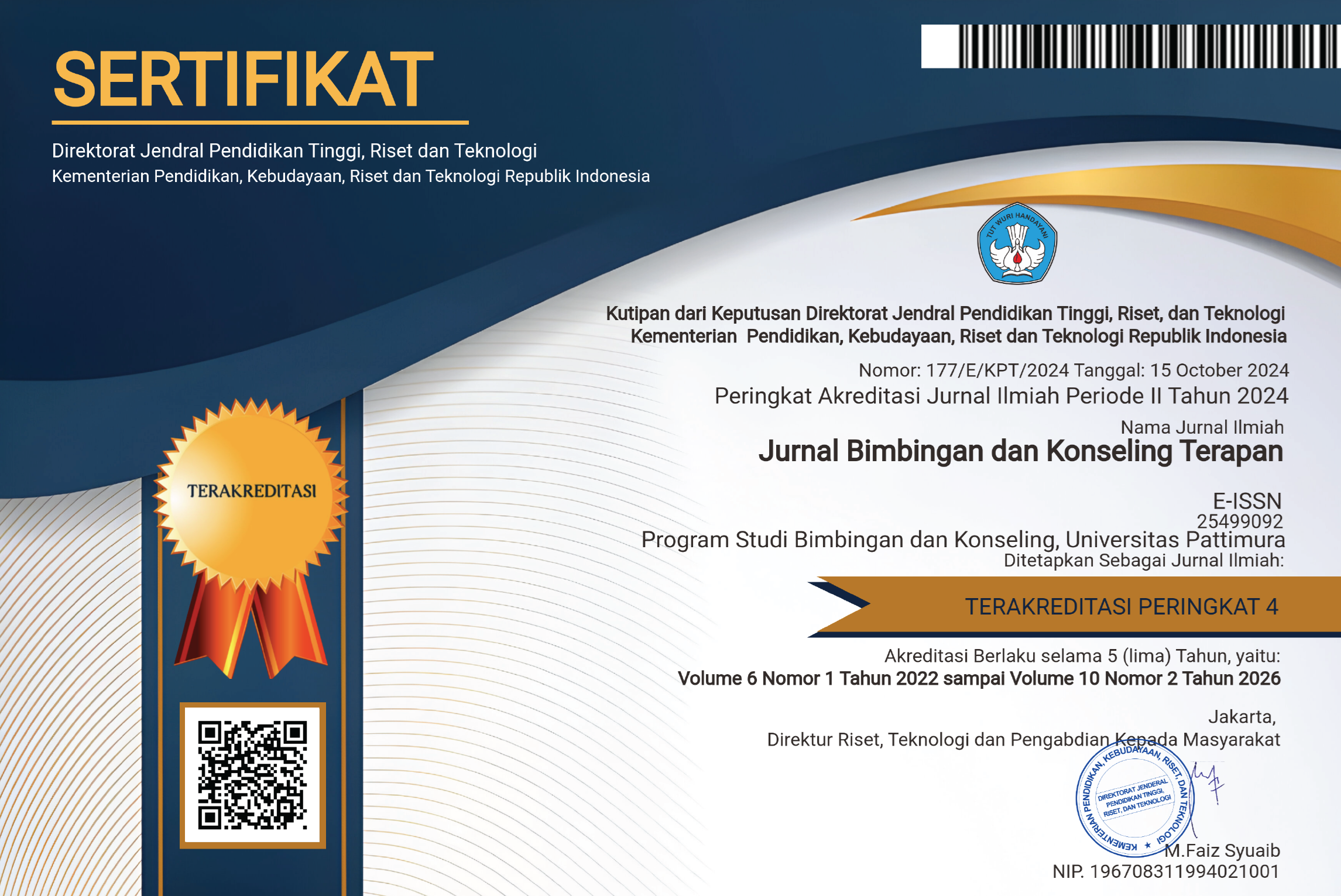The Influence of Parents on Adolescent Independence: A Study in the Context of Islamic Boarding Schools and Its Implications for Counseling
Abstract
This study investigates the influence of parental attachment on the independence of students in Islamic boarding schools, with a focus on understanding how this attachment contributes to the development of autonomy among adolescents. The research, conducted with 181 students aged 13-18 years, examines the relationship between parental attachment and student independence, employing a quantitative approach with data collected through the Inventory of Parent and Peer Attachment (IPPA) scale. The results demonstrate that parental attachment accounts for 10.4% of the variance in student independence, while the remaining 89.6% is influenced by other factors such as genetics, parenting styles, educational environments, and birth order within the family. The study highlights the critical role of parental attachment in fostering independence but also emphasizes the importance of a multifaceted approach to guidance and counseling that considers the complex interplay of various influences on student development. The findings suggest that counseling professionals should incorporate strategies that strengthen parental involvement, even in the context of limited interaction in boarding schools, through structured communication programs and family counseling sessions. Additionally, tailored counseling interventions that focus on building resilience, self-efficacy, and decision-making skills are essential for addressing the unique challenges faced by students in Islamic boarding schools. By integrating educational strategies with counseling practices, a supportive learning environment can be created that promotes critical thinking and autonomy. The study concludes that a comprehensive and holistic approach to guidance and counseling is necessary to effectively support the development of independent, resilient, and well-rounded students in Islamic boarding schools, maximizing their potential in both academic and personal spheres.












